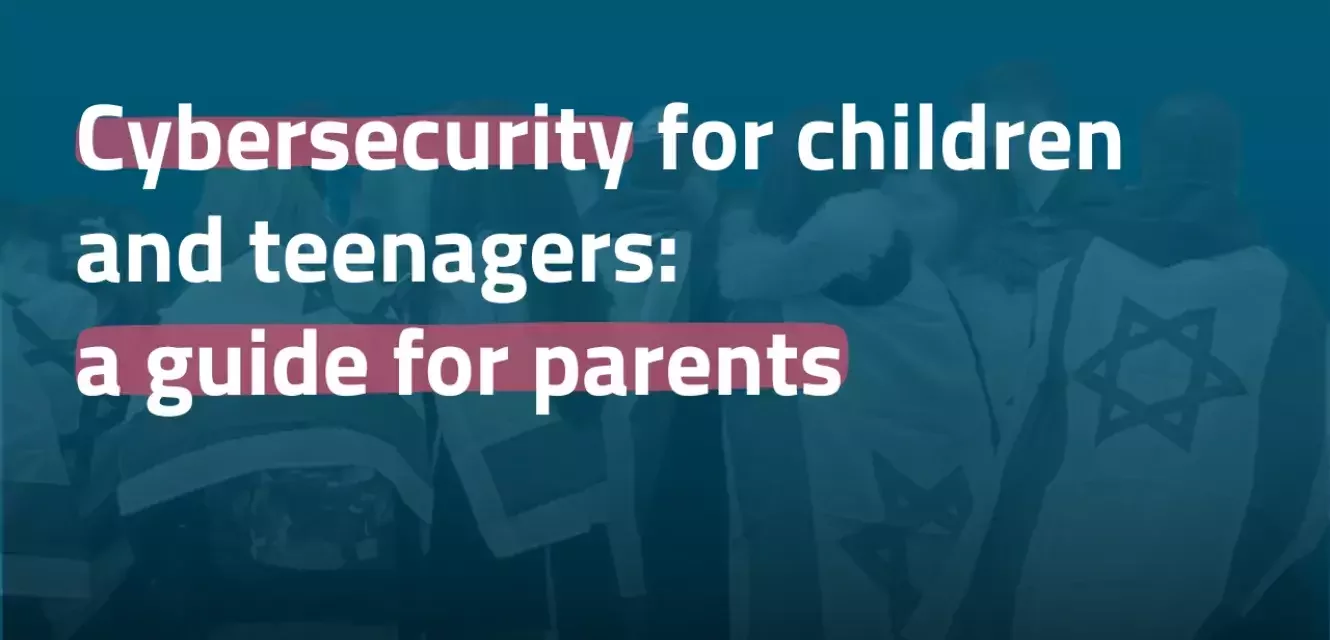Cybersecurity for children and teenagers: a guide for parents

Hamas' brutal attacks take place not only on the ground, but also in the digital space. Psychological aspects of warfare have long been used and targeted by the antisemitic terrorist organization. It is to be feared that Hamas is not only spreading targeted propaganda on a scale rarely seen before, but also brutal violence against the Jews. Children and teenagers are thus confronted with content that they can hardly process. Parents are exposed to this, want to protect their children and feel overwhelmed. Antisemitism is also rapidly spreading online and can become an additional burden and threat for children, teenagers and adults.
Temporarily blocking apps like TikTok:
In this exceptional situation, parents should temporarily block social media apps as they pose a direct safety risk to children's mental health.
This recommendation is also made by the Israeli government. Background information should be explained to children in an age-appropriate manner. It is important that children and young people understand that this is a temporary measure for their protection and not a punishment.
Technical options:
- Smartphones can be set up to be safe for children, giving parents an overview of children's activities. However, this option should be explained to children in an age-appropriate way so that they understand the background and perceive it as a protective measure.
- For more information:
https://www.klicksafe.de/en/smartphone/einstellungen
https://www.androidcentral.com/setting-kid-friendly-android-device
https://support.apple.com/en-us/HT201304
- Discuss what reliable sources are. Do not repost or distribute unverified information, text, images, or videos. Point out false reports and manipulative posts in media.
- Discuss with children whether their privacy and data are safe. Possible steps and topics include:
- What WhatsApp or other groups is the child a member of?
- Do these groups feel safe? Does the child know the members personally?
- Is he or she only friends with people he or she knows? Are there weird requests coming in from strangers right now?
- What information is publicly available? Who can see something about the child's whereabouts? (e.g. public posts before school, playground,....)?
- Does the child use strong passwords?
- Does the child experience cyberbullying? Does he or she know that parents are approachable?
Tip: Go through the topics yourself as well as together with your child and see if there are any weaknesses in your own safety. Perhaps the child already has his or her own knowledge and can teach his or her parents something.
Report online antisemitism:
- Report antisemitic content. All social media platforms have reporting options that can be used in the event of antisemitic incidents. This also applies to messenger services such as WhatsApp.
- File reports on antisemitic content. Agencies such as HateAid provide support for reporting.
- Ask for support. Counseling and psychosocial support after incidents (e.g. HateAid.org)
